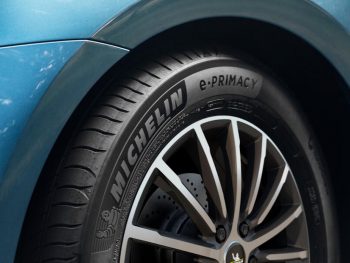Wrong tyres can impact running costs and performance, fleets warned
Choosing the incorrect replacement tyres for cars and vans could lead to increased costs and affect both vehicle handling and potentially the vehicle manufacturer’s warranty.

Customers can now select between summer, all-season, winter, extra load, run-flat technology and even acoustic-tuned tyres
The warning comes from Michelin to both businesses and drivers as it says its fleet team has seen a rise in cases of vehicles driving on inappropriate tyres, such as cars running on van tyres and vice versa, the mixing of standard and run-flat technology products, or incorrect tyres which don’t have the required speed or load rating for the vehicle.
The rise is believed to down to the fact that there is so much more tyre choice available today.
Peter Wood, Michelin key account manager, said: “As technology has evolved, so has tyre choice. Customers can now select between summer, all-season, winter, extra load, run-flat technology and even acoustic-tuned tyres, to name just a few of the options. In one size alone, there can be several different load and speed ratings to suit various vehicle types, plus options for different seasons and driving styles.”
Brian Porteous, Michelin’s technical manager – car, van, 4×4 and government contracts, added: “It is crucial that any replacement tyres you select are compatible with each other, compatible with the vehicle and deliver the appropriate handling and performance characteristics.
“Vehicle manufacturers work incredibly hard to fine-tune their cars and vans to handle a certain way, and all of that can be upset if you fit a tyre which, although the correct size, might be intended for a different vehicle altogether. Driving on inappropriate tyres can also lead to reductions in fuel efficiency, passenger comfort and tyre life, plus a noisier ride.”
To help fleets maximise safety and avoid incorrect tyre selection, Michelin has published a six-point guide, applicable regardless of tyre brand preference.
- Tyres must meet the vehicle manufacturer’s requirements of load and speed, plus any local regulatory requirements such as: vehicle speed, E marking, winter marking, directional fitment etc.
- If a vehicle manufacturer requires specific marked, homologated tyres, then these must be fitted. It is sometimes possible to use other tyres, but not always – consult your vehicle handbook.
- It is essential for vehicle stability that the best grip is maintained at the rear. If all tyres are not being replaced together, the new tyres must be fitted to the rear.
- The tyres on each end of an axle must be of the same type. Differences in tyre performance, particularly towards the end of a tyre’s life, make this critical for vehicle stability and predictability.
- Winter tyres must always be fitted in full vehicle sets. Do not mix summer and winter tyres across a vehicle.
- Run-flat technology tyres must always be fitted in full vehicle sets and to the appropriate wheel type. The vehicle manufacturer’s guidance must be followed as there are often differences in vehicle characteristics to work effectively with the run-flat tyre capability.

















